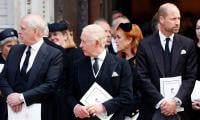Bulleh Shah — the biggest philosopher of all times
LAHORE: The Pakistan Literature Festival closed Sunday with three well-attended days with around 50 sessions on literature, art, music and performances. The third day opened with sessions on ‘Lok Daastans of Punjab’ and ‘New Poetry New Possibilities’, followed by a session on four book launches and all of them generated great interest in people.
The discussants in the Lok Daastans of Punjab were Aksi Mufti and Sarwat Mohyuddin while Bina Goindi was the moderator. Aksi, the founder of Lok Virsa who went abroad for PhD in philosophy, found that the biggest philosopher of all times was of his own country, the Sufi poet Bulleh Shah. Lok Daastans are coming to people through oral tradition since the 12th century. They discussed Heer and termed it full of wisdom. He said his mother knew Heer Waris Shah by heart and would quote from it on many instances but we have forgotten Heer by now. Now people get into this debate if Heer and Ranjha were real. These characters are immortal, he said. The places in the hundreds of years old story are still there--Takht Hazara and Jhang are there.
Sarwat recalled that Waris Shah’s urs falls on 9-10 Sawan and Heer is sung round the clock there. Many people wrote Heer but the version that became most popular is Heer Waris Shah. It is called Heer Waris Shah. People would recite Waris Shah’s verses to end fights. Bulleh Shah, Waris Shah and Sha Abul Latif Bhitai were contemporaries.
Their poetry is about Ishq. There is need to embrace Ishq.
Sarwat said Baba Fareed had said all that which Maulana Rum said hundred years later. We have failed to celebrate the great Sufi poets of this region.
Another session, that of four book launches, was of Professor Fateh Muhammad Malik’s autobiography, Ahmad Salim’s book ‘Meri Dharti Meray Log’, Shahid Siddiqi’s ‘Potohar—Khitta-e-Dilruba and Irfan Javaid ‘Aadmi’ which is life sketches of the different and interesting people he met in life.
Prof. Fateh Muhammad Malik has kept his focus on issues of national importance. Its an autobiography and he has not mentioned his family because he said he wanted the reader to get a clear picture of Pakistan because all his life Pakistan has remained his subject of attention. He has shared his observations and insight into the future of the country. “Pakistan came into being by people’s movement and it was a good thing that it happened,” he said. He has taught in Europe, America and Russia and with his teachings he changed their perception of Pakistan—improved the country’s image abroad. Iftikhar Arif introduced the book to the audience.
Shahid Siddiqui has written about the people who lived in Rawalpindi once, a city from he comes. There are all from minority and his writing was read in India, people called and wrote back to him. This shows how his writings have helped create bridges. One sketch is of Anand Bakhshi who has composed music for thousands of songs and lived in Shahid’s neighbourhood.
Salim Ahmad’s book and Irfan Javaid’s books are also about people and sound very interesting. In the session on ‘New Poetry New Possibilities’, Yasmeen Hameed, Najeeb Jamal, Fatima Hassan, Jawaz Jafri and Aurangzeb Niazi talked about the topic while Shakeel Jazeb organised the event.
-
 Gigi Hadid Talks About 'relieving Tension' Amid Having Hashimoto's Disease
Gigi Hadid Talks About 'relieving Tension' Amid Having Hashimoto's Disease -
 Sarah Ferguson Is 'persona Non Grata', Prince William Makes It Clear To Everyone
Sarah Ferguson Is 'persona Non Grata', Prince William Makes It Clear To Everyone -
 Northern Lights Alert On Valentine’s Day: How, Where & Best Time To Watch Auroras
Northern Lights Alert On Valentine’s Day: How, Where & Best Time To Watch Auroras -
 Dennis Quaid Reveals What Keeps His Marriage To Laura Savoie Healthy
Dennis Quaid Reveals What Keeps His Marriage To Laura Savoie Healthy -
 Mustafa Suleyman Says Microsoft Is Building Its Own AI Superintelligence
Mustafa Suleyman Says Microsoft Is Building Its Own AI Superintelligence -
 Jessica Alba, Cash Warren Finalize Divorce After 16 Years Of Marriage
Jessica Alba, Cash Warren Finalize Divorce After 16 Years Of Marriage -
 China’s AI Boom Takes Center Stage At Spring Festival One Year After DeepSeek Stirred The Industry
China’s AI Boom Takes Center Stage At Spring Festival One Year After DeepSeek Stirred The Industry -
 James Van Der Beek Called His Sixth Child Jeremiah 'healing For Us' Before His Death
James Van Der Beek Called His Sixth Child Jeremiah 'healing For Us' Before His Death -
 Elon Musk Vs Reid Hoffman: Epstein Files Fuel Public Spat Between Tech Billionaires
Elon Musk Vs Reid Hoffman: Epstein Files Fuel Public Spat Between Tech Billionaires -
 Gordon Ramsay Denies Victoria Beckham Got Handsy With Brooklyn At His Wedding
Gordon Ramsay Denies Victoria Beckham Got Handsy With Brooklyn At His Wedding -
 Gordon Ramsay Makes Unexpected Plea To Brooklyn As He Addresses Beckham Family Feud
Gordon Ramsay Makes Unexpected Plea To Brooklyn As He Addresses Beckham Family Feud -
 Prince Harry Warns Meghan Markle To 'step Back'
Prince Harry Warns Meghan Markle To 'step Back' -
 Selena Gomez Explains Why She Thought Lupus Was 'life-or-death'
Selena Gomez Explains Why She Thought Lupus Was 'life-or-death' -
 New Zealand Flood Crisis: State Of Emergency Declared As North Island Braces For More Storms
New Zealand Flood Crisis: State Of Emergency Declared As North Island Braces For More Storms -
 Nancy Guthrie Case: Mystery Deepens As Unknown DNA Found At Property
Nancy Guthrie Case: Mystery Deepens As Unknown DNA Found At Property -
 James Van Der Beek's Brother Breaks Silence On Actor's Tragic Death
James Van Der Beek's Brother Breaks Silence On Actor's Tragic Death



